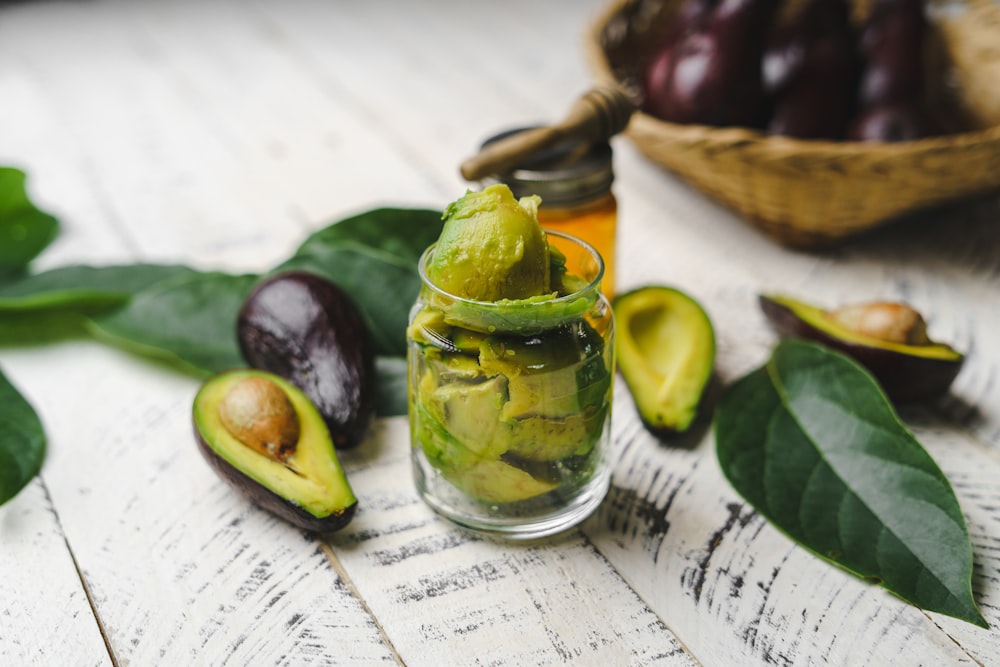
Our bodies rely on carbohydrates, proteins and fats in order to function. When people speak about the difference between saturated and unsaturated fat, it’s often accompanied by a debate on which fats are ‘healthy fats’. Recently, it’s become more widely known that eating certain types of fat is very good for you. In the past, however, fat has gotten quite a bad reputation as being a leading contributor to weight gain and health problems, which sparked an increase in fad diets that focused on eliminating fat. It turns out this was not entirely true.
Thankfully, research has come a long way, and we now know better.
Fat is a macronutrient that we absolutely need in our diets. Certain vitamins, such as vitamin A, vitamin E and vitamin D, are fat-soluble. This means that we can’t absorb these vitamins without an adequate supply of fat in our diet. Fatty acids are molecules that join together in groups of three (carbon, hydrogen and oxygen) to form triglycerides. Some fatty acids, like omega-3s and omega 6s, our bodies can’t make on their own.
Fat is also a great source of energy. In fact, fat can store more energy than glycogen can. Compared to carbs or protein, which can store 17 kJ of energy, one gram of fat can contain 37 kJ of energy. This is the theory behind the popular Keto diet, which strictly limits the amounts of carbs a person can eat and instead gets its energy in the form of ketones, a fatty acid.
The Keto diet proves that fat is a very effective source of energy.
Certain fats are much healthier than others, however. Let’s take a look at and compare the two different types of fats that come naturally from foods: saturated fat and unsaturated fat.

What Are Saturated Fats?
Saturated fats are so named because they are saturated in hydrogen molecules. They contain only single-bonded carbon molecules and solidify at room temperatures. According to Lisa Richards, a nutritionist and author of The Candida Diet, “because saturated fat is solid at room temperature it places the consumer at greater risk for heart disease and other chronic illnesses by raising cholesterol levels and ultimately resulting in artery blockages or atherosclerosis.”
Many come from animals, like cured or fatty cuts of meat, or animal byproducts, such as butter, ice cream, milk and cheese. However, saturated fats can also be found in some plants, particularly those that grow in tropical regions, like palm or coconut oils. Some other sources include pastries and baked goods like pies, cakes and cookies.
Saturated fats can be further broken down by chain length, meaning the number of carbon molecules they are made up of. Each type (short, medium, long and very long chain lengths) will affect your health in different ways. Short-length fatty acids, for example, improve the health of your gut.
Saturated Fats: Good or Bad?
There is some debate surrounding the topic of saturated fatty acids and how adversely they affect your health. For a long time, they’ve been demonized as the ‘bad’ type of fat and absorbed much of the blame for heart disease and conditions such as atherosclerosis.
That’s because saturated fats do, in fact, contribute to higher levels of low-density lipoprotein (LDL) cholesterol, the ‘bad’ kind of cholesterol and apolipoprotein (Apo-B).
Apo-B is the main protein that makes up LDL. It helps LDL attach itself to the surface of a cell, especially in the liver, where it is then broken down and dispersed throughout the body via the bloodstream in the form of cholesterol. So, while saturated fats do indeed contribute to factors that increase the likelihood of heart disease developing, there is no solid evidence that directly links saturated fats to heart disease.
That’s not to say you shouldn’t limit it in your diet, but a healthy diet can leave some room for saturated fat. “The American Heart Association (AHA) recommends keeping your consumption of saturated fat to about 5 or 6 percent of your daily calorie intake to reduce the risk of heart disease,” says Richards.
What is Unsaturated Fat?
Unsaturated fat differs from saturated fat because unsaturated fat contains fewer hydrogen atoms, so unsaturated fats remain their liquid consistency even at room temperature. According to Richards, “Unsaturated fat [also] has at least one [double bond] between the individual carbon atoms they contain. Under the umbrella of unsaturated fat lies monounsaturated and polyunsaturated fats.
Monounsaturated fats contain one carbon to carbon double bond and are instrumental in controlling insulin and blood sugar levels. Polyunsaturated fats, on the other hand, contain 2 or more double bonds and play an important role in essential body functions like the building of cell membranes, helping blood to clot and muscles to move.
Unsaturated fats also aid in the formation and the maintenance of the myelin sheath, an insulating outer coating of the nerve cells. When the myelin sheath is well supported, communication between neurons is quicker and more effective, improving memory and other cognitive abilities.

How Unsaturated Fats Contribute to Your Health
“Simply put, unsaturated fats are considered good fats because their contribution to illness and disease is significantly low and their benefits to health are impressive,” says Richards. “They both (mono and polyunsaturated fats) also provide vitamin E to the consumer, which is an antioxidant-type vitamin that most [of us] are lacking yet plays a vital role in health at the cellular level.”
Medical professionals regard unsaturated fat as a ‘good’ fat because of the role it plays in decreasing the amount of LDL cholesterol in the body. High-density lipoprotein (HDL), a byproduct of healthy fats, absorbs cholesterol and brings it back to the liver, where it is filtered out of the bloodstream and eliminated from the body.
Other byproducts of unsaturated fats are omega-3s and omega 6s, fatty acids that contribute greatly to bodily functions on the cellular level. Richards explains, “They play a key role in regulating the body’s inflammation and when they are out of balance or lacking, the body can become chronically inflamed and result in a wide array of chronic illnesses and diseases common in the West.” Some examples include asthma, rheumatoid arthritis, eczema and chronic peptic ulcers. Our bodies can’t make omega 3 or 6 fatty acids on their own, so we need to supplement them in our diets. Some excellent sources of these fatty acids include fish, nuts, flax, leafy green vegetables and oils.
The Bottom Line
While a diet that’s too high in either saturated or unsaturated fat is not ideal, unsaturated fats are clearly the better, healthier option. That’s not to say that saturated fat should be avoided altogether since studies haven’t been able to directly link the consumption of saturated fat directly to heart disease or stroke. One macronutrient alone isn’t directly responsible. While other factors certainly come into play, a balanced diet that includes vegetables, fruits, healthy carbohydrates and fats along with regular exercise, plus lots of water and sleep is the best way to keep your body healthy and strong and your heart resistant to damage.
However, some people are genetically predisposed to heart conditions and can certainly metabolize macronutrients better than others. Your diet and nutrition reports based on your DNA test from CircleDNA can help you create a meal plan that’s most optimal for you based on your unique genetic makeup.






